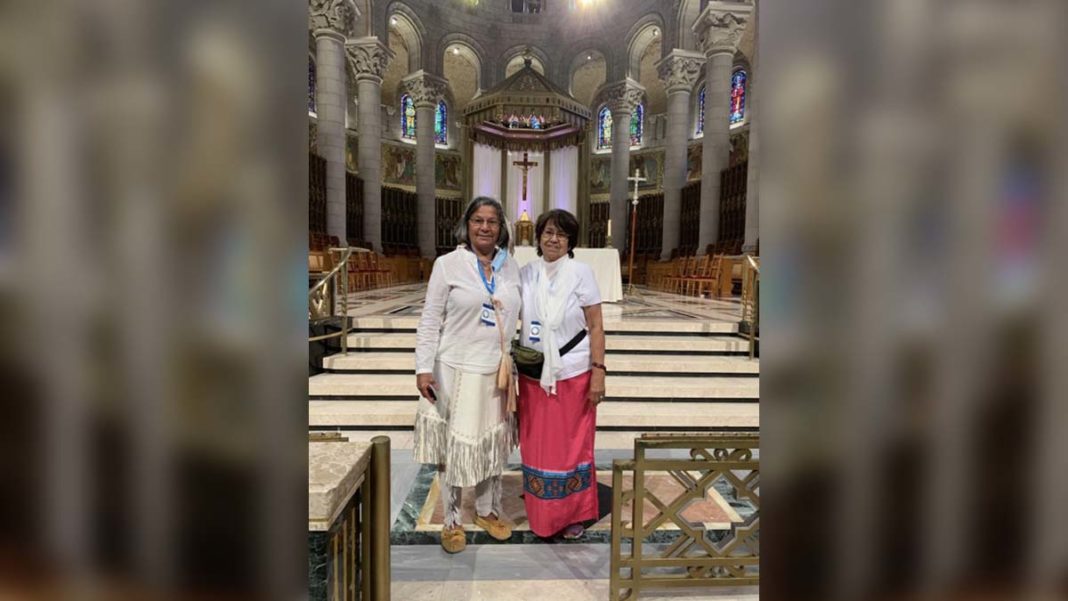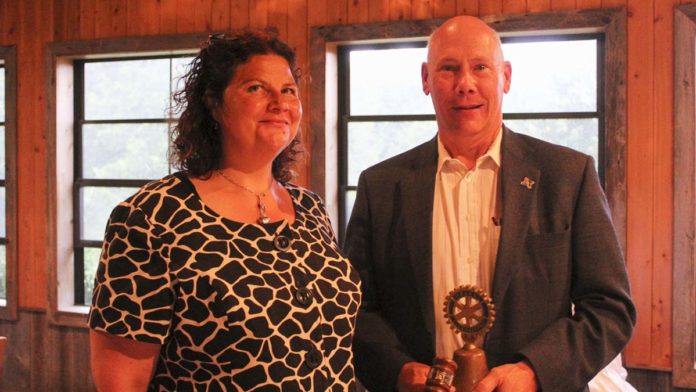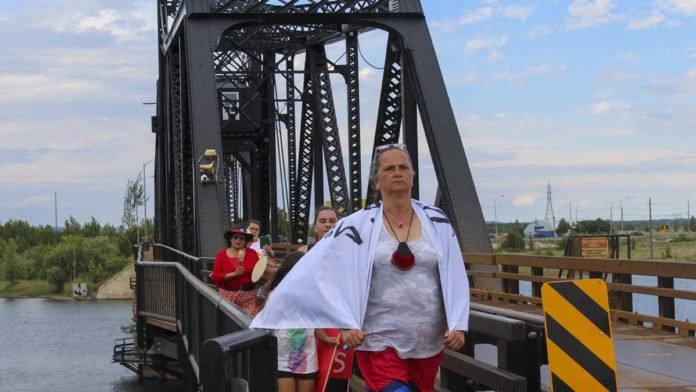by Gina Gasongi Simon
MONTREAL—“I heard about the Pope’s visit and initially I had no interest,” said Wiikwemkoong Ogimaa Duke Peltier. “Then I see the agenda which entailed a planned meeting with Indigenous leaders and decided it was a prime opportunity to have a private moment with the Pope.”
Eastern Canada was also presented with a rare chance for a select few to also meet Pope Francis. Ogimaa Peltier escorted six elders from Wikwemkoong to Montreal to greet the Pope’s pilgrimage.
It was an eye opener for sisters Rosemary Wakegijig and Margaret Jackson. “We learned about other students’ experiences at the various residential schools throughout Canada. Some of the stories were very harsh and some students were subjected to very cruel means to strike the Indian out of them,” said Ms. Wakegijig.
As ogimaa of Wikwemikong Unceded Territory, the decision to attend the special visit was a difficult one. The thoughts of big crowds and a sea of people was a bit overwhelming, along with travel during COVID times.
“There are a lot of things that happened not only with this church (Holy Cross Mission), but the day schools and all the stories of young boys from our community, subjected to sexual abuse while serving as altar boys,” Ogimaa Peltier shared. “I figured this was the venue to speak directly to the Pope on behalf of these boys who were victims and others who experienced abuse at the hands of the cloth. Hopefully, some things get heard and they make some changes on how they operate.”
Ogimaa Peltier admitted he felt strength after reading this reporter’s front page story outlining the thoughts of my parents, Maxie and Margaret Simon, on the Pope’s apology, published in last week’s Expositor. “I had a copy with me and while waiting I read it and it provided me with some substance and background. I could only imagine how our grandparents must have felt as children forced into these schools. I felt a bit of that confusion meeting the Pope, it was foreign—strange people, strange dress, speaking a strange language. All the pomp, kinda stiff, very little gestures, difficult to tell what was going on. All the bodyguards, translators—translating from English, to French, to Spanish—so many languages before my message was delivered. It brought those feelings of alienation.”
The ogimaa went on to share, “Those that attended the schools, everyone had different experiences for better or for worse. The ones I escorted, their experiences were not as dramatic. They’re devout Christians and were very appreciative of the opportunity to go and meet the Pope themselves. They all had their time with him. I took my time, I offered gifts on behalf of our elders, along with a handwritten thank you card and a picture of the ruins. In my letter to him, I wrote from stories I heard and learned about from former students.”
He said he asked the Pope as a meaningful gesture of reconciliation to respect the Anishnaabe traditions of prayer, ways and traditions. Ogimaa Peltier provided him with an example of a lost moment. “I reminded him he had an opportunity, as our part of contribution to the mass in Edmonton, you could have allowed or invited Gilbert Pitawanakwat to do the gospel in Anishnabemowin, you could have allowed him to do the gospel in our language, as he does it here in Wiikwemkoong. That, I told him, would have been very meaningful, as part of your apology—allowing that to happen on a world stage.”
“As a global institution, I reminded him he can make statements for others to learn about our people, respect our ways and teachings. Respect our way of raising our children,” Ogimaa Peltier continued. These suggestions the ogimaa felt where tangible solutions. “Help them to help us,” he added.
When asked about his thoughts on the Pope using the word ‘genocide’ in a press conference following his visit here, Ogimaa Peltier shared his view: “Genocide is a hard word for the western world to comprehend. Because those times, perhaps different, the Pope still has an opportunity to take some ownership of it, as the head of the Roman Catholic institution. But like with any other apology, actions speak stronger than words,” Ogimaa Duke Peltier concluded.
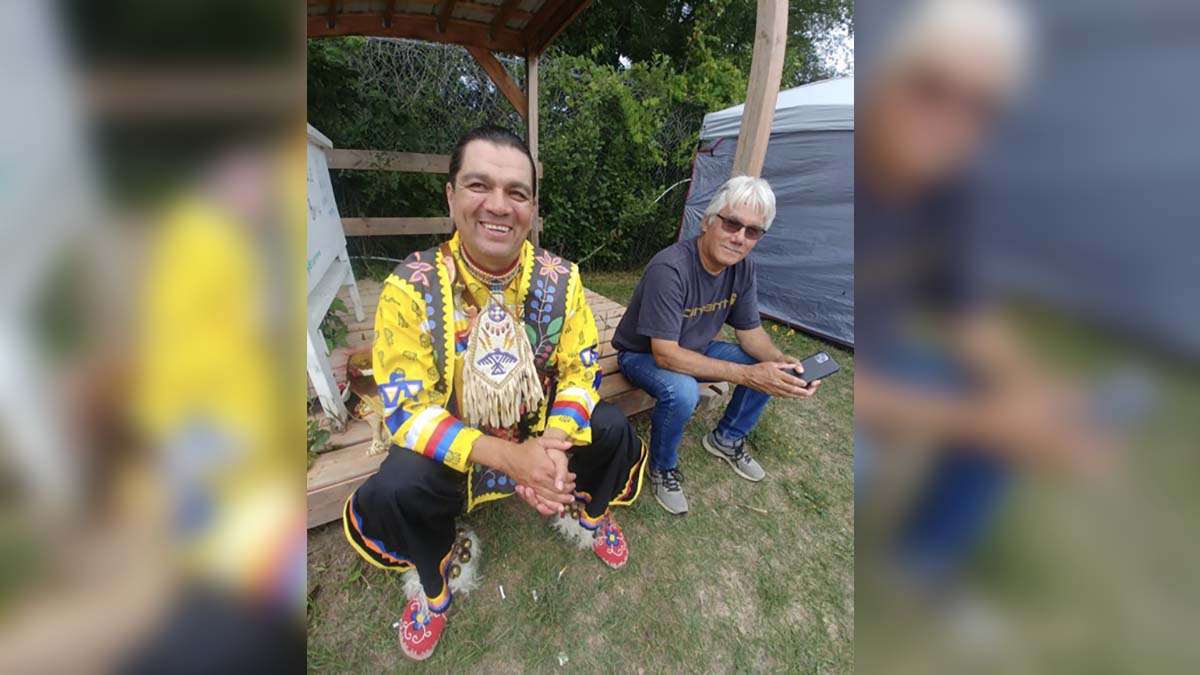
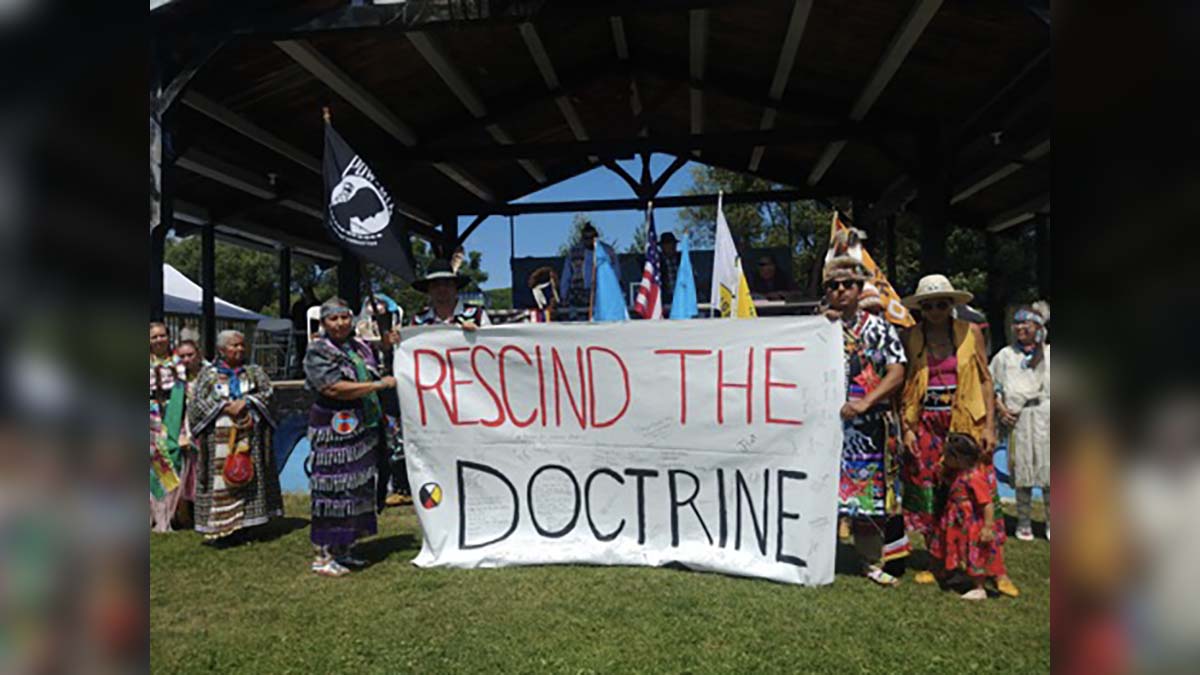
apology and avoidance of the topic to rescind the papal bull ‘Doctrine of Discovery.’

number, 173, given to me at Spanish Residential School. He took my arm firmly and gave me a blessing. I felt his sincerity.”

